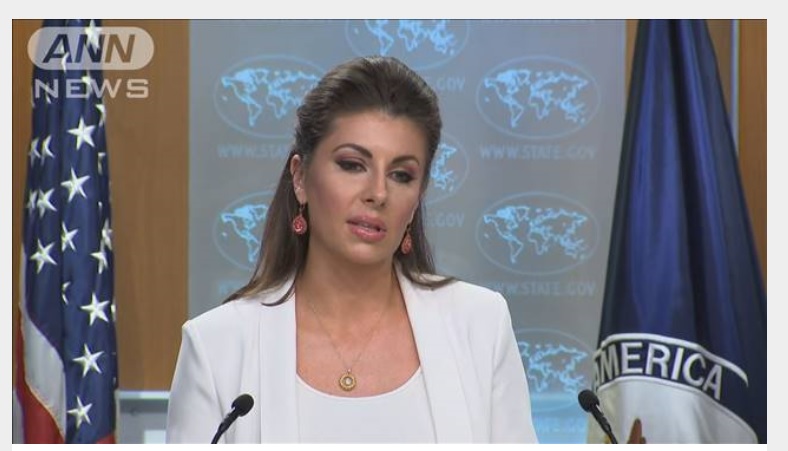|
> アメリカ政府は日本の輸出規制を巡り、韓国から懸念を伝えられたことについて日本の対応を問題視する意向を示していません。 日本のマスコミは、フェイク・ニュースを流してる。 記者会見の質疑応答から、分かることは、オルトガス報道官は、この問題について、詳しい情報を持っていないことだ。 だから関連する質問を、自ら打ち切っている。 日本の事実上の規制を「問題視していない」とは、一言も言っていない。
> QUESTION: Can I follow-up on the readout that you had this morning of the phone call between the Secretary and the South Korean foreign minister?
MS ORTAGUS: Yeah. Give me a second to find that one. QUESTION: Sure. MS ORTAGUS: We issued that, right? QUESTION: Right. MS ORTAGUS: Yeah. Go ahead. QUESTION: In the statement, of course, it calls for cooperation among the United States, South Korea, and Japan. The South Koreans said that they raised concerns about Japan’s decision to restrict exports of – related to – of – to technology to South Korea. Was that raised? Does the United States have viewpoints on whether Japan should be taking that action against a fellow ally? MS ORTAGUS: So I’m not going to go beyond the readout in terms of what was presented in the call, but I would say that Japan and South Korea are, of course, not only friends, they’re allies. And the United States – and of course here at the State Department, we’re going to do everything we can to pursue ways to strengthen our relationships between and amongst all three countries, both publicly and behind the scenes. It’s an incredibly – both relationships are incredibly important. We all share – face shared regional challenges and priorities in the Indo-Pacific and around the world, and so we will continue to do that – to work with both Japan and South Korea both publicly and privately. QUESTION: What type of measures could that be? I mean, for example, ASEAN is coming up. Would a three-way meeting be something that would be in the cards? MS ORTAGUS: I’m not going to preview what sort of media that we’ll do at ASEAN, but we will, of course – I mean, we are in communication with these countries via our embassies and, of course, via the State Department on a daily basis. These are some of the closest relationships that we have in the world, and we’ll continue to work with both countries to strengthen the relationship between all three of us. QUESTION: And I know you said you’re not actually going beyond that, but I mean, has there been contact with Japan about their decision to — MS ORTAGUS: I’m not going to go beyond that. Lesley. QUESTION: Morgan, I just was – I’m going to stick with South Korea, I think. MS ORTAGUS: South Korea, okay. QUESTION: Was any of that discussion to do with a report out overnight from outlets – Asian outlets based here that the U.S. is considering offering 12 to 18 months suspension of certain sanctions against North Korea? MS ORTAGUS: So while we don’t preview any sort of sanctions from the podium, whether it’s adding new ones or taking them away, I will say that I did actually speak to Steve Biegun about that, and he categorically denied that. He said that report is completely false, so there is no truth to that. QUESTION: A follow-up on North Korea? MS ORTAGUS: Sure. QUESTION: The South Korean representative of (inaudible) from Blue House has come to meet the U.S. representative yesterday here. Do you have anything on this? How the U.S. (inaudible)? MS ORTAGUS: I don’t have anything extra on that meeting. I’m sorry. I’ll look into that. Does anybody – let’s stick with Asia for a little bit, and then we can switch to — QUESTION: A follow-up? MS ORTAGUS: Yeah. QUESTION: South Korea is saying they would like the U.S. to mediate the dispute between Japan and South Korea. Is that something the U.S. is considering doing? MS ORTAGUS: With all due respect, I just answered three questions from Shaun on that subject, and I think that I gave a sufficient answer. https://www.state.gov/briefings/department-press-briefing-july-11-2019/
|

 スパムメールの中から見つけ出すためにメールのタイトルには必ず「阿修羅さんへ」と記述してください。
スパムメールの中から見つけ出すためにメールのタイトルには必ず「阿修羅さんへ」と記述してください。